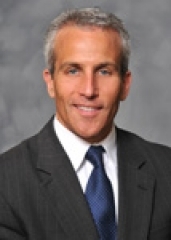
Recently, I particpated in a team-building session focused on strengthening culture, which in turn helps foster improved patient and staff experiences.
It's easy to get caught in the tasks of the daily grind. Check the communications board, check vital signs, round regularly, provide bedside report. Those things need to take place.
Making it all meaningful is a task on a different level. How do we make genuine connections with our patients?
When you stop to think what makes the experience special, what comes to mind? What would make it special for you? What would you expect as a patient?
When reviewing top themes, most patient experience questions include words such as: "responsiveness, explained, listened, received, told, received info, treated and helped."
By just listening, explaining and responding in a timely manner, we can address the majority of patient experience issues. For example, being responsive to call lights and explaining medications are a major part of the healing process, and probably reduce falls and readmissions.
In our hurried world, it is easy to get lost in daily tasks and lose sight of the experience that even we want as healthcare providers.
For further perspective, I asked two of our leaders to share some of what they have learned.
Rebekah Jernstedt, one of our nursing directors, and Marsha Sipes, our patient experience culture specialist, shared the following:
As healthcare has evolved over the years, our patients have become sicker and have increasing medical needs. The demand on healthcare workers has followed suit and has pushed nursing into a task-driven occupation. Nurses and CNAs spend their work shifts moving robotically from one treatment task to another. For example: A nurse goes into a patient room to give the patient some medication. The nurse does a great job verifying the patient (safety), administering the ordered medication using the “five rights of medication administration,” and educating the patient about the medication and side effects during administration (quality). This example is a perfect interaction between the nurse and patient that shows the nurse performs exceptionally with safety and quality.
Many healthcare workers believe patient experience scores should be reflected in the safe and quality care we provide for our patients. Although safety and quality are important and are at the top of our priority list, they do not complete the puzzle. We believe the missing piece of the puzzle is the "genuine connection.” The connections healthcare workers make with patients and family members are really what creates the overall patient experience. A great patient experience will include safety, high-quality care, and the genuine connection that makes the patient and family feel secure and cared for.
The neuroscience unit at Cape Coral Hospital is embarking on a new journey to intently bring the genuine connection back into daily practice. All staff members will be educated in how to develop genuine connections with the patients and family members through experiential training that will involve the following:
- Role playing, with an actor playing the patient role
- Self-awareness
- Coaching and follow-up shadowing done with staff members on the unit while interacting with patients and each other
Our patient experience culture specialists and unit leadership will continue to spend time on the neuroscience unit to provide real-time feedback and assist in hard-wiring the genuine connection practice.
We believe that once we shift nursing from a task-driven environment to one that includes the genuine connection with safety and quality, then we will truly create an optimal healing environment and exceptional experience for our patients and family members.
What are you doing to make genuine connections with your patients, families and colleagues?
I look forward to hearing from you.
Scott Kashman serves as the Chief Administrative Officer of Cape Coral Hospital, part of the Lee Memorial Health System in southwest Florida.